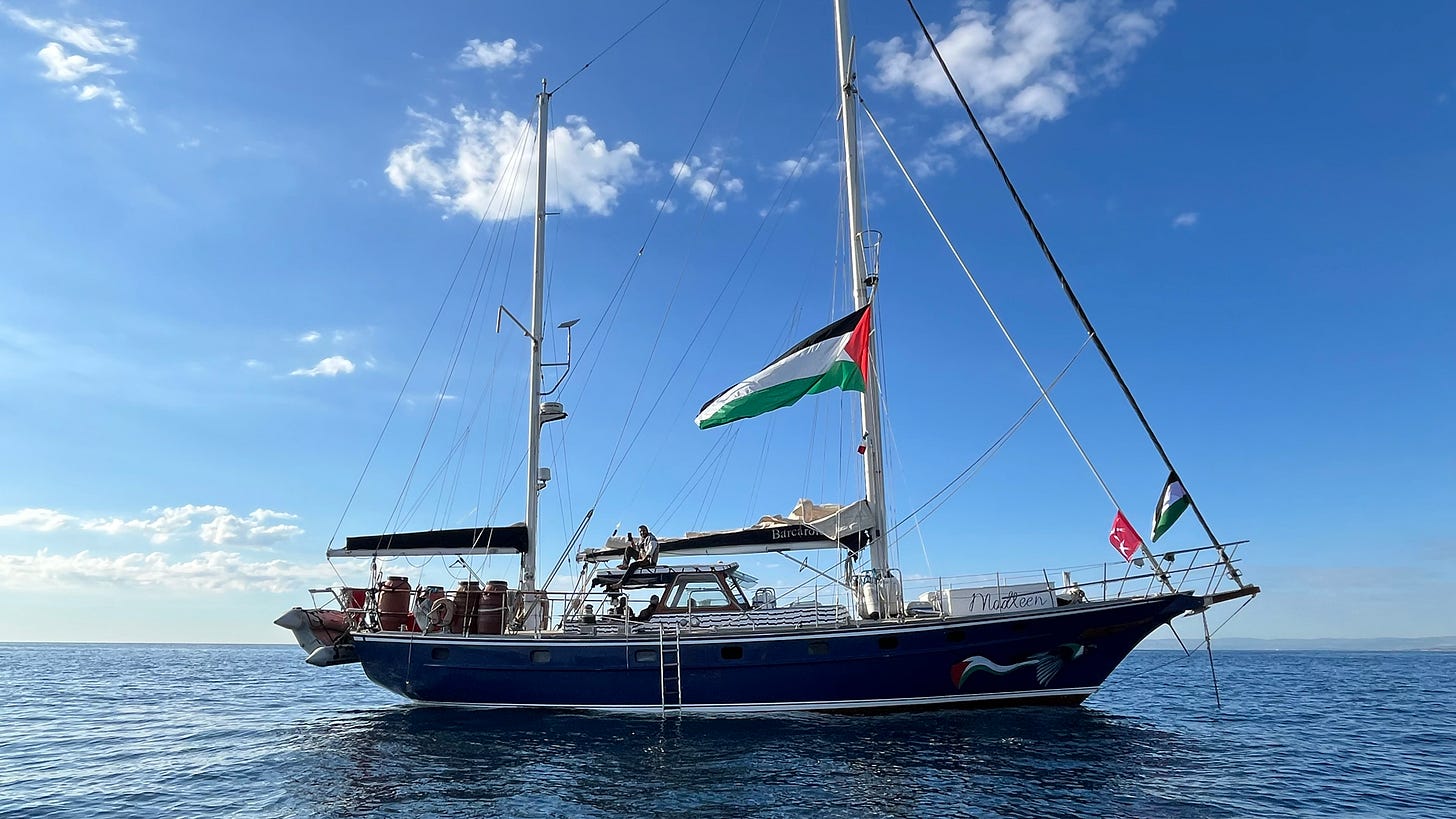It has happened again, a humanitarian flotilla bound for Gaza has been intercepted in international waters, its passengers taken, and now civilians from 46 countries are being held hostage. Israel will say it is “enforcing a blockade,” western media will say “Israel detained activists,” but take away the biased spin and what remains is an act that breaks international law on multiple levels. From the illegality of the blockade itself, to the illegality of stopping ships in international waters, to the illegality of detaining civilians who were carrying aid.
Let’s be clear, these were unarmed ships, carrying food, water, and medicine. They posed no threat whatsoever to the only nuclear power in the Middle East. The only “weapon” on board was solidarity, and even still Israel responded as if these vessels were a naval fleet, because the truth is that Israel sees food itself as a weapon. It has used starvation deliberately in Gaza, tightening and loosening the flow of calories as a tool of control. If you admit that food is a weapon in your hands, then of course you view its delivery by others as an act of war.
Blockades are only lawful under very narrow conditions. They must be proportionate, they must allow humanitarian access, and they cannot target civilians as a whole. The Gaza blockade fails every one of those on points. It is collective punishment, which the Geneva Conventions explicitly ban. And yet, year after year, Israel insists on calling this starvation policy “security.”
To enforce such a blockade by sending commandos onto civilian vessels in international waters is piracy, no matter how much statements try to whitewash the act. It is a violation of the UN Convention on the Law of the Sea, it is a violation of the Fourth Geneva Convention, and it is, bluntly, an act of war carried out against anyone who happens to be on board.
And who was on board this time? Delegations from 46 different countries, parliamentarians, activists, doctors, clergy, ordinary civilians who believed in delivering aid to a besieged people. When you seize those people and drag them to Israeli ports, they are not “detainees,” they are hostages. Taking people by force to compel others to act or to deter them from acting is hostage taking. Israel does this to discourage future flotillas, to intimidate international solidarity, to send a message that even on the open seas, far from Gaza, it can grab you and lock you up.
The world has seen this before. The Mavi Marmara massacre in 2010, when Israeli forces killed nine activists and injured dozens, should have been the last straw. A UN fact-finding mission declared the blockade itself unlawful, the killings unlawful, the entire interception unlawful. Even then, Israel walked away shielded by American vetoes and European silence.
Fifteen years later, here we are again: same crime, same excuses, same silence.
But this time the scope is larger. Forty-six countries now have citizens taken hostage by Israel on the high seas. Forty-six governments cannot pretend this is an “internal matter.” Forty-four foreign ministries cannot explain away their nationals being dragged off ships at gunpoint. This is not just a Palestinian issue anymore, and that is exactly why Israel fears these flotillas, they internationalise the siege, they make it impossible to ignore that Gaza is not some isolated problem but a wound the whole world is being forced to witness.
And so Israel does what it always does, it breaks international law again, in full view of everyone, betting that once more the so-called international community will look away, issue statements of “concern,” and quietly move on. But there is no moving on from hostage-taking, not when it’s people from every continent, not when it’s happening in international waters, not when the law is this clear.
It’s just a pity we live in a world of inaction in 2025.




